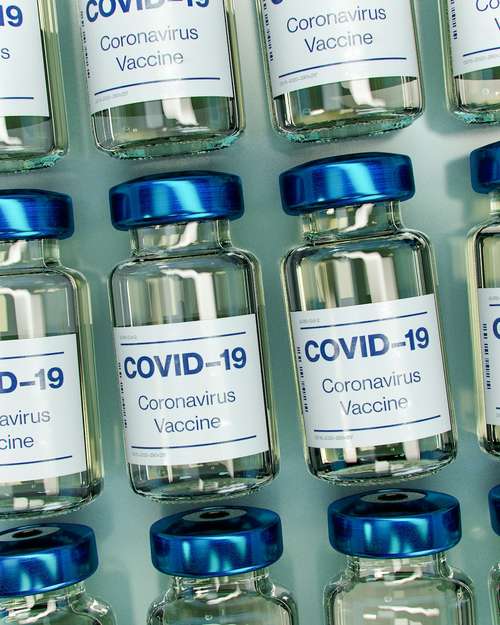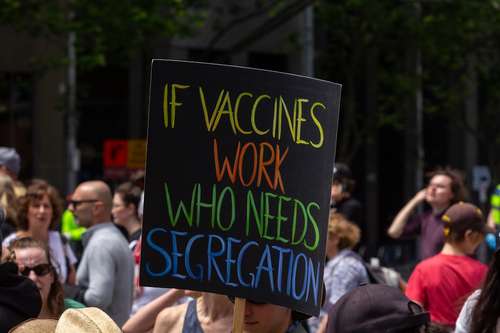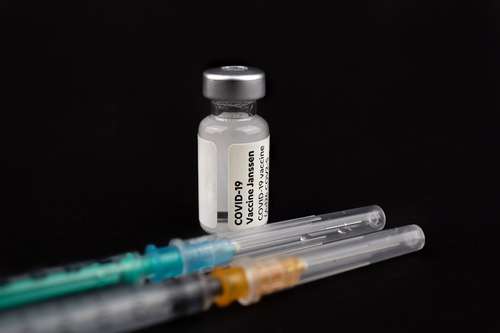The COVID-19 pandemic has taught us many lessons, and one of the most critical is the role that vaccine access plays in controlling a public health crisis. For many of us, the vaccines have been a lifeline—our ticket to getting back to a semblance of normalcy. Yet, when we hear discussions about restricting COVID-19 shots, it sends a shiver down the spine. It’s natural to wonder: could limiting vaccine availability just open the door to a surge in cases?
Over the past few years, we’ve seen how vaccination efforts have helped counteract the virus's spread. But imagine a scenario where restrictions on these vital shots lead to lower vaccination rates across communities. With fewer people receiving their vaccinations, the possibility of an outbreak increases. It’s a scenario that underscores the delicate balance we must maintain between policy and public health.
The Impact of Restricting COVID-19 Shots
Looking at the impact of potential vaccine restrictions provides a clear picture of the problems that might lie ahead. Restricting vaccines doesn’t just lower the immunity of a few individuals; it ripples out, affecting entire communities and compromising our collective safety.
When vaccine restrictions are imposed, either by limited supplies or through policies that narrow access, high-risk individuals, like the elderly and those with pre-existing conditions, can be left vulnerable. The world is already grappling with the repercussions of the pandemic, and adding another surge in cases due to vaccination limitations could overwhelm our already strained health systems. With each shot that doesn’t land, we increase the virus transmission rate, setting the stage for further outbreaks.
For many health experts, the relationship is clear: better vaccine access means a lower chance of the virus spreading. Every delay or restriction ultimately becomes an opportunity for the virus to find a new host, which in turn increases hospitalizations and could lead to more deaths. It’s a stark reminder that in the battle against COVID-19, widespread immunization is our strongest line of defense.
Understanding the Link Between Vaccine Restrictions and Rising Cases
Here, we break down why restricting COVID-19 shots could directly lead to a surge in cases. The idea is simple: vaccines work best when a large segment of the population is immunized, which keeps the virus at bay. Reducing vaccine access means fewer people are protected, and the door remains open for the virus to circulate.
Have you ever wondered why, despite advances in treatment and prevention, outbreaks still occur? One reason is that uneven immunization leaves gaps in our defense strategy. When immunization policies result in vaccine restrictions, these gaps widen, permitting the virus to jump from one unprotected host to another. In areas with low vaccination rates, a COVID surge isn’t just a possibility—it’s almost inevitable.
The correlation between vaccination limitations and outbreak prevention is backed by data and real-world examples. In communities where vaccine access has been limited, we have seen an escalation in virus transmission. It’s like trying to stop a leak in a dam by patching only a few holes—the strain builds until the entire structure is compromised. Ensuring widespread vaccine access is essential for maintaining the integrity of our public health defenses.
It’s important to note that vaccine restrictions can stem from multiple sources, such as supply chain issues, policy decisions, or logistical challenges. Each of these factors, when not managed effectively, contributes to the potential for a COVID surge. Essentially, restricting vaccines disrupts the balance between virus transmission and disease control, making it a significant public health challenge.
Implications for Public Health and Outbreak Prevention
The broader implications of restricting vaccine access go far beyond individual health. They touch on the core of public health and how we manage disease control on a large scale. If we continue to see vaccination limitations, it’s reasonable to expect a rise in cases that could stress the entire healthcare system.
When public health policies restrict vaccine access, it’s akin to leaving a crucial door open during a storm. The virus seizes these opportunities, accelerating transmission and potentially triggering a surge that overwhelms hospitals. The connection between restrictions and a surge in cases is further highlighted by the fact that every missed vaccination can serve as a catalyst for further spread—the health crisis deepens with each unvaccinated individual.
One of the significant challenges in this scenario is public trust. When immunization policies seem to favor select groups or when vaccine access isn’t consistent, it not only makes disease control harder but also sows seeds of doubt among the public. Trust in the process is essential; without it, efforts to encourage vaccination may falter, leaving communities even more exposed to risks of an outbreak.
Policy-makers are in a tough position. They must balance competing priorities, such as managing limited supplies and addressing logistical bottlenecks, all while keeping an eye on the larger picture of public health. The alternative—restricting vaccines to such an extent that a COVID surge looms—is not a risk we can afford to take.
Looking Ahead: The Future of COVID-19 Prevention
As we look toward the future, the importance of ensuring comprehensive vaccine access becomes even more apparent. Preventing a surge in COVID-19 cases isn’t just about reacting to a crisis; it's about proactive outbreak prevention and robust public health strategies. The success of our COVID-19 prevention efforts hinges on our ability to maintain widespread vaccine coverage.
This isn't merely theoretical. Past experience during the pandemic has consistently shown that areas with greater vaccine access fare better in terms of virus transmission and overall community health. It’s similar to having a fire extinguisher on hand during a blaze—the sooner and more effectively you tackle the problem, the less damage there is. Keeping vaccines accessible is a key part of that preventative strategy, minimizing the risk of another devastating outbreak.
Moreover, when we consider virus transmission as a community challenge, the data is compelling. Broad immunization efforts are directly tied to reduced COVID surge risks. Each shot administered is another barrier set against further spread—a simple yet powerful message: fair and open vaccine access keeps the pandemic at bay. The future of public health depends on making these vaccines as accessible as possible, so no one is left behind in our fight against COVID-19.
In wrapping up, the evidence is clear. Restricting COVID-19 shots is not just a policy misstep; it poses a direct threat to outbreak prevention and overall disease control. While there may be logistical and supply challenges along the way, addressing these issues head-on with a mindset geared towards maximizing vaccine access is critical. The health of our communities and the resilience of our public health infrastructure depend on it.
Ultimately, by ensuring broad, equitable vaccine access, we strengthen our defenses against the virus and pave the way for a healthier tomorrow. Everyone benefits when immunization policies are designed to leave no one behind. Keeping vaccine restrictions at bay is not just about preventing a surge in cases—it’s about reaffirming our commitment to a future where community health and safety are prioritized above all else!




